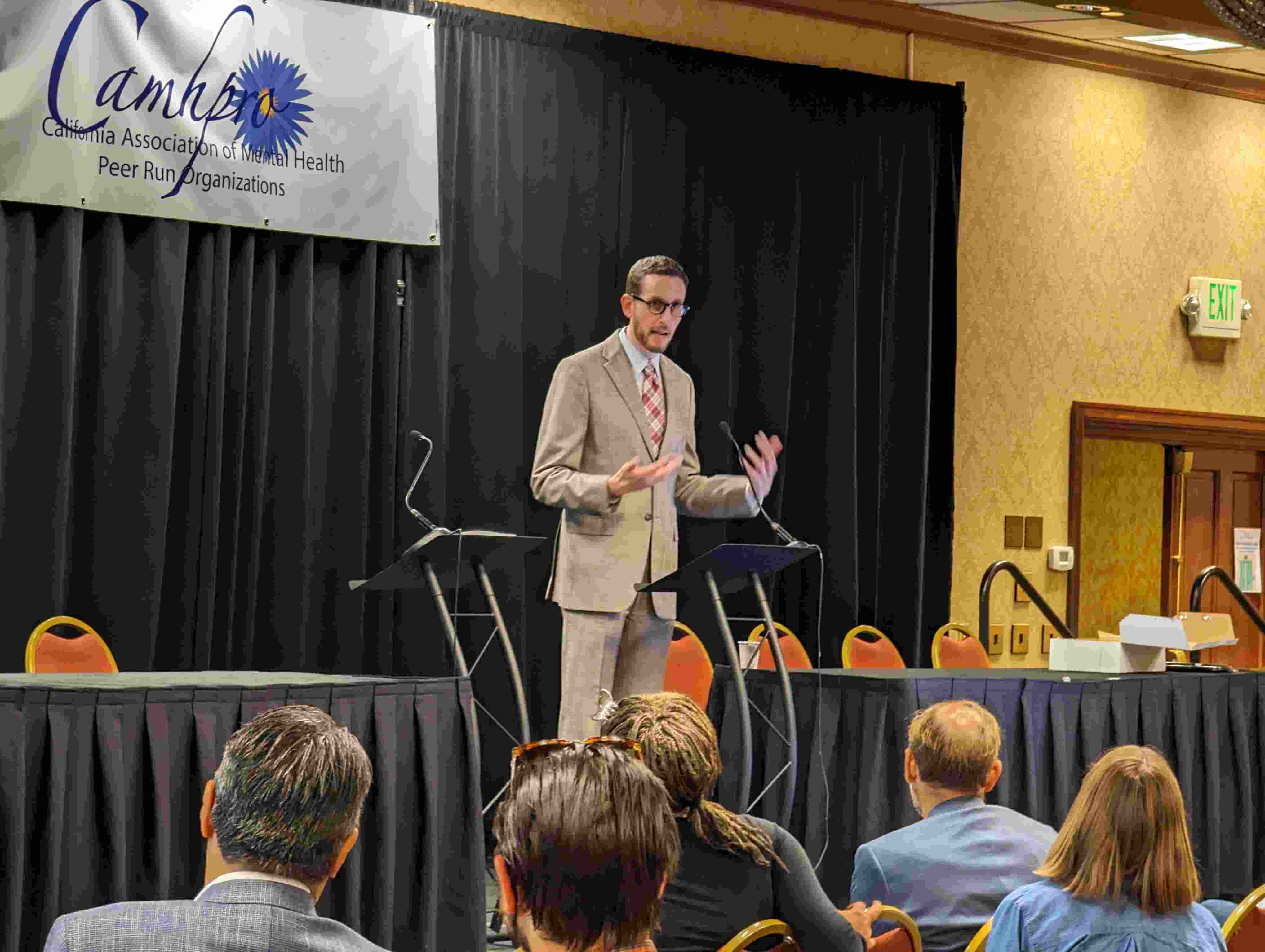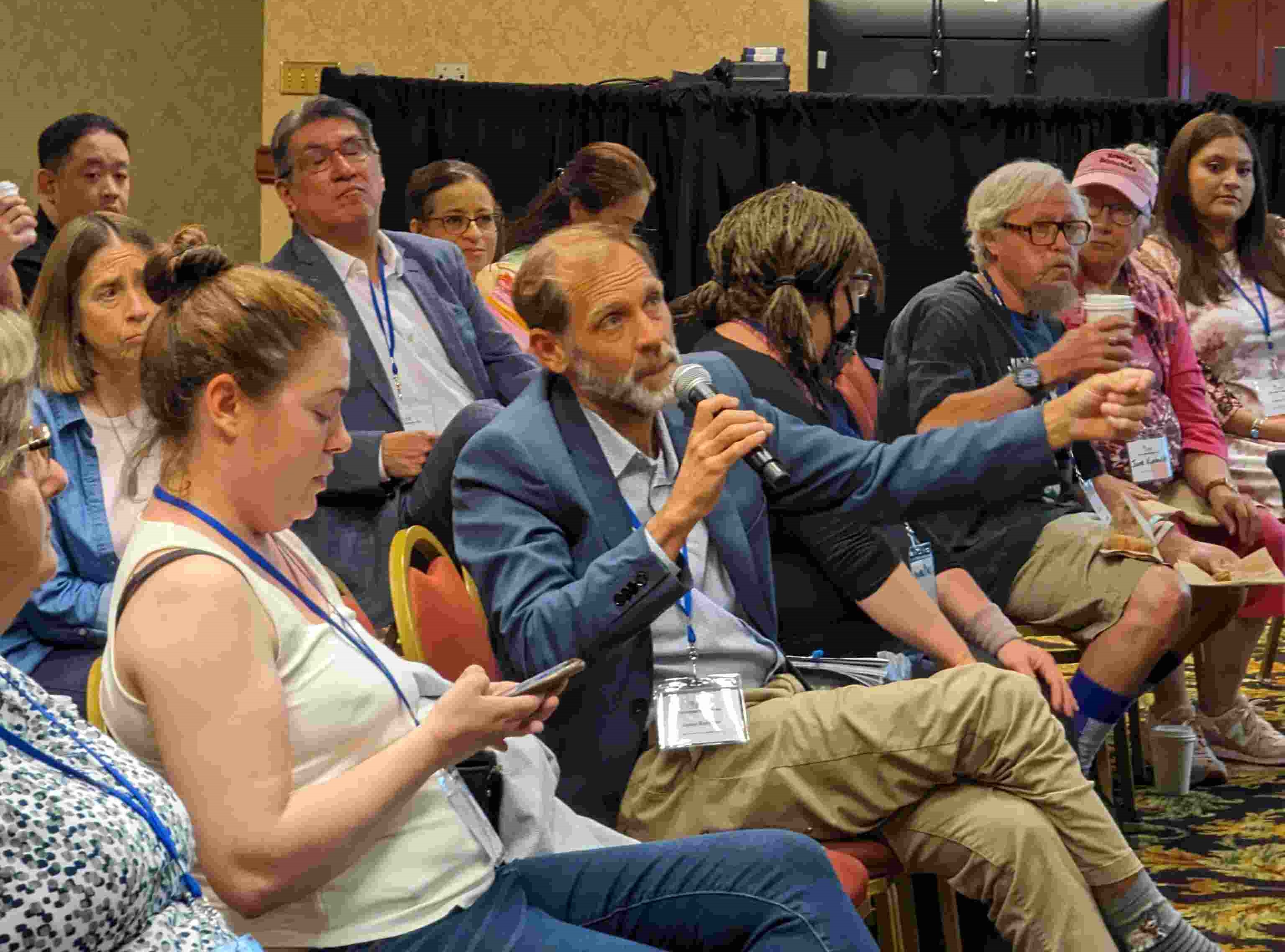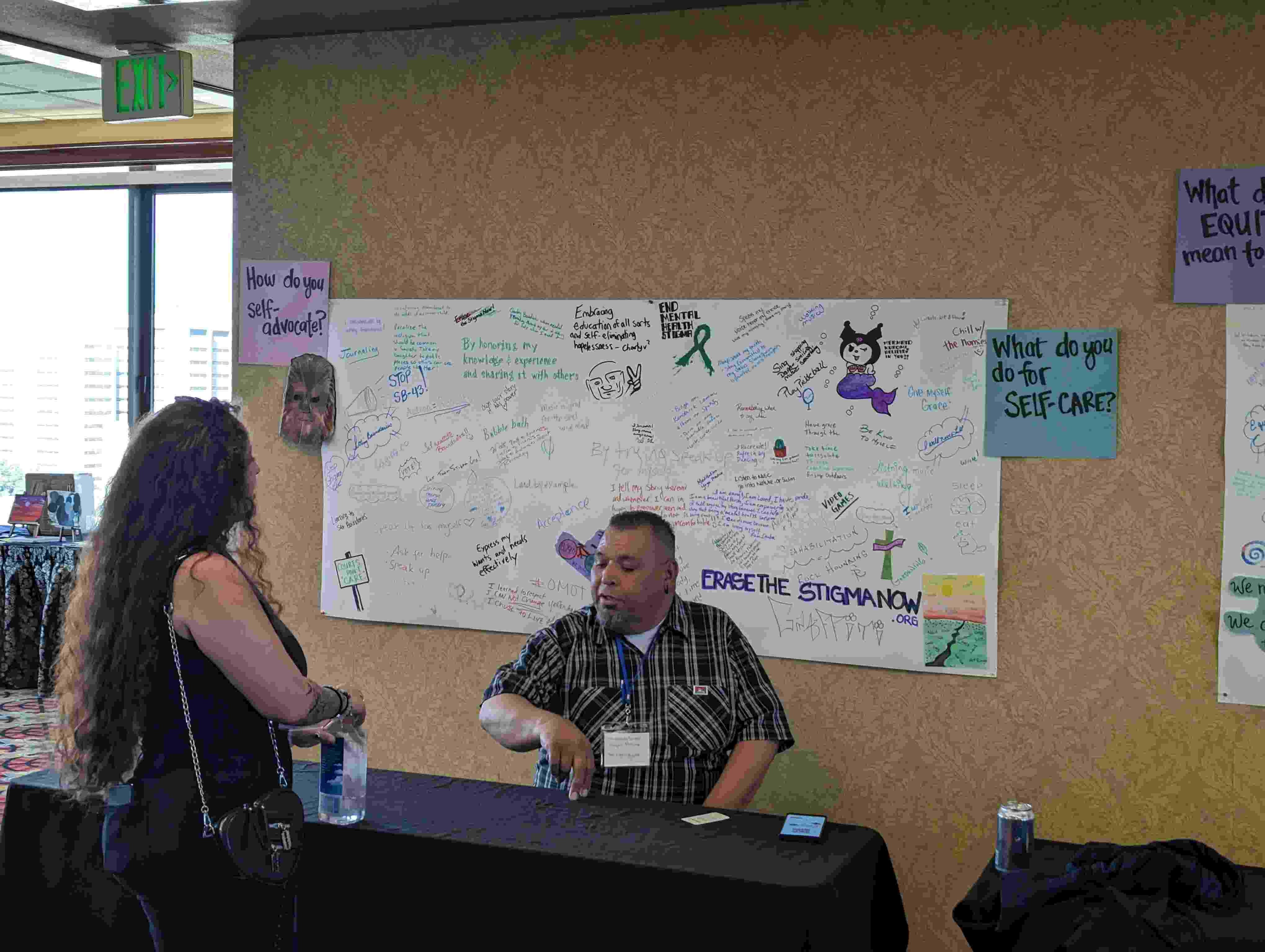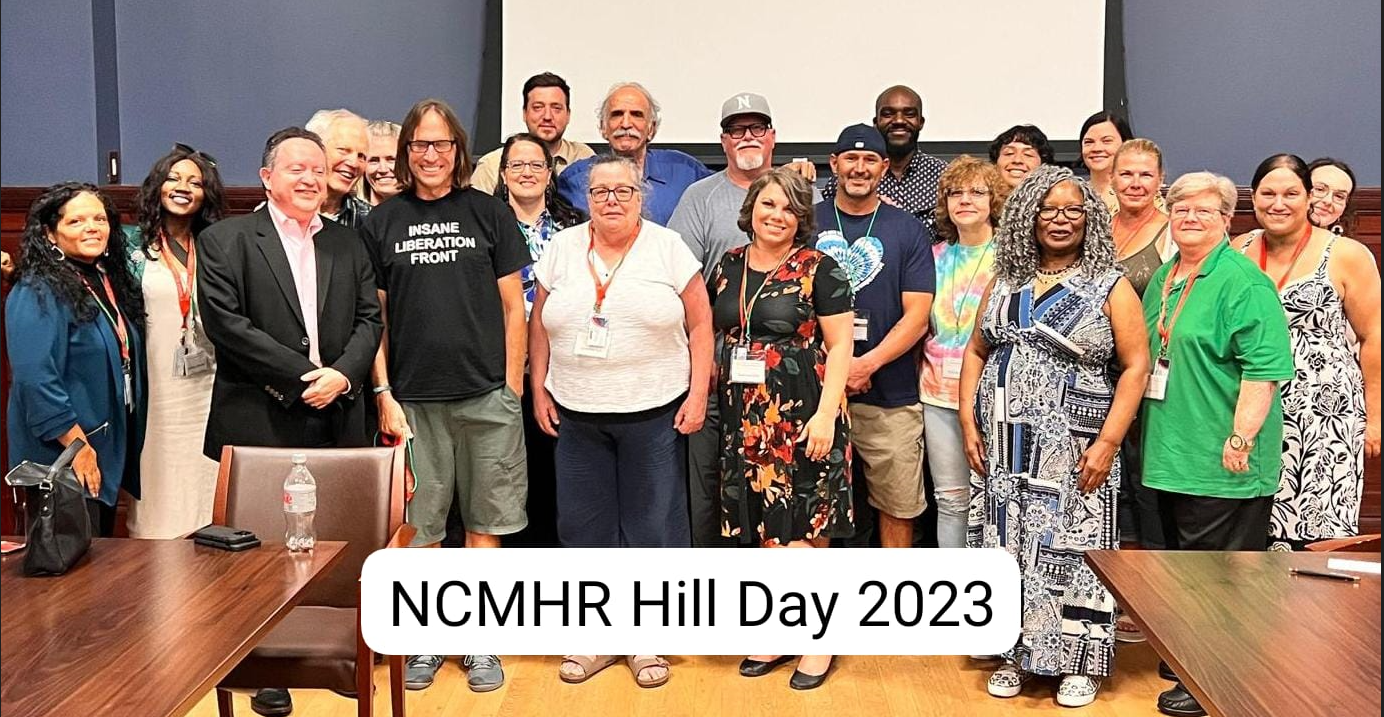Why Won't They Listen?

We want to speak out and make change. Why is that so hard to do?
At this year’s LEAD Peer Statewide Conference, more than 400 people showed up in person and another almost 200 online to do just that. Hundreds of people from every region of the state were in one place with many people lining up to take the microphone. They spoke for hours at the open mic in the advocacy exhibition. Dozens lined up near the stage to speak after listening to 10 state advocacy leaders talk about the looming threats to gut the Mental Health Services Act and destroy our mental health funding at the county levels. The next day even more people swarmed toward the microphone who had gotten up early to hear from Senator Weiner. The senator showed up late and only had time to hear two comments after he spoke.

People are ready to speak out and be heard.
Legislators and policy makers that say they don’t know what peers want. Yet, here we were, hundreds of us in Sacramento, blocks from their offices, and the decision makers weren’t there to listen. More than a month before the conference, CAMHPRO staff walked personally to EVERY office of EVERY senator and assembly member in Sacramento and invited them to the conference and gave them handouts about the guiding principles of the Mental Health Services Act. Senator Weiner was the only politician to show up in three years of conferences despite invitations to the lawmakers, and he came only because of the persistence of constituents at the Mental Health Association of San Francisco.
After actively fighting CARE Court last year and this year’s onslaught of Senate Bill 43 and the Mental Health Services Act modernization proposals moving unanimously and at lightning speed through the legislature, it is clear that Sacramento legislators are not listening and blatantly ignoring the voice of people with lived experience in mental health.
It is hard not to get discouraged. I became an advocate because I saw the life-changing, curative, transformative, and powerful forces that peer support and wellness and recovery work are. I thought, if people just knew about this, if everyone knew there was a better way to treat mental health challenges, they would want to change the system too. I now know how naive I was. I am seeing that our system actively rejects change and that society, still, is not ready to accept that people experiencing mental health changes can decide for themselves what they need.
I have concluded: we are not going to affect policy until we can change the minds of people who create policy and the general population needs to know what is happening.
We have to help people know what it means to be a person with lived experience who finds recovery. As demonstrated in the California Assembly Health Committee on June 27, our elected officials willfully dismissed and ignored facts and testimony telling them that expanding the definition of gravely disabled under the law will not help people get better. Changing the LPS Act also will not address the issues that Senator Eggman described (someone walking on the streets with feces on their face).
Right now, all the policy makers know is the experience of watching a loved one suffering and that is all they can feel. It is too much for them to empathize with someone who is actually going through it.
This is a public idea that is currently carried by the media and general public - that the right thing to do is to decide for others what is best because they can’t decide for themselves and that medication will fix them. Look at the Law & Order, Special Victims Unit, episodes portraying mental illness to see this point of view in plain sight. In one episode, a lawyer visits his institutionalized sister. He is ashamed to tell anyone about her and when Lt. Benson hears about his sister with schizophrenia, she is “so sorry.” The next episode, the lawyer is tasked by the hospital doctor to decide for his sister whether to increase his sister’s medication because she now has tardive dyskinesia. The doctor tells him that long-term use of the medication caused the permanent muscle spasms and stiffness and that increasing the medication is the solution. He also says that whenever they tried to take her off the medication she got psychotic and tried to kill herself, despite the reality that coming off of antipsychotic medication can increase psychosis initially. The sister is portrayed as not knowing the lawyer, her brother, while sitting on a couch mindlessly twitching and shaking and silent. He decides to increase her medication. Yet not once in the episode did it portray anyone wondering or asking her what SHE wanted. It never showed other options that she tried - peer support, being outside an institution, having friends, …. In another episode, an Olympic athlete who gets raped after pursuing sexually promiscuous behavior and running wildly through the night is deemed to have bipolar disorder and magically “gets better” after a few weeks on medication, improved enough to quit her dream of the next Olympics and give up on her physical training.
When it comes to mental health, the dominant political force and media position is that those who are “ill” don’t get to choose for themselves and that medication is a way to fix them and keep them alive, even if they aren’t really “living.” Until we change people’s hearts and make them feel what it is like to be the person experiencing the mental health challenges, instead of only the person suffering to watch, we cannot change the direction that our nation’s public administration is going.
Call to Action:

- Let’s organize and show up at hearings and policy makers' doors, from city mayors to county supervisors to state representatives.>
- Share your ideas with other advocates and create action plans to speak out.
- Join a regional networking leadership group, such as the Building Peer Leadership ones forming this month.
- Make videos and flood social media with your voice.
- Join others in coalitions, such as PARR (Peers Advocating for Rights and Recovery), or get involved with organizations such as CAMHPRO, CalVoices, and others to sign onto letters and build efforts for alternative proposals like Disability Rights California’s current counter proposal to SB 43.
Only together, and only with a united message of “Nothing About Us Without Us” can change the minds and hearts of people. Only then, can we make change.
By Andrea Wagner, CAMHPRO Executive Director


